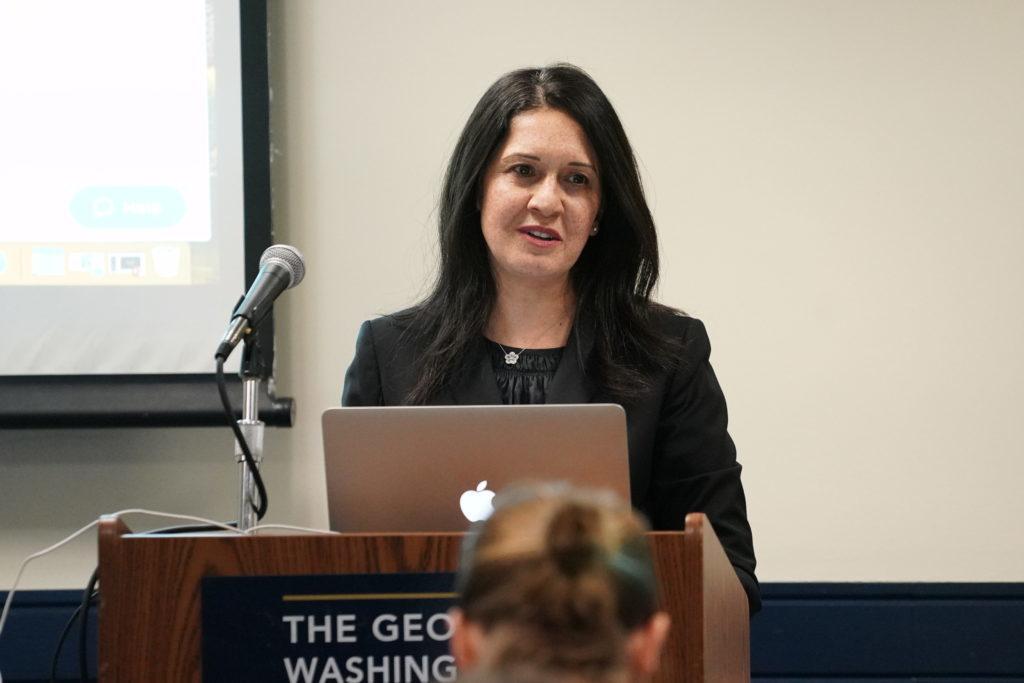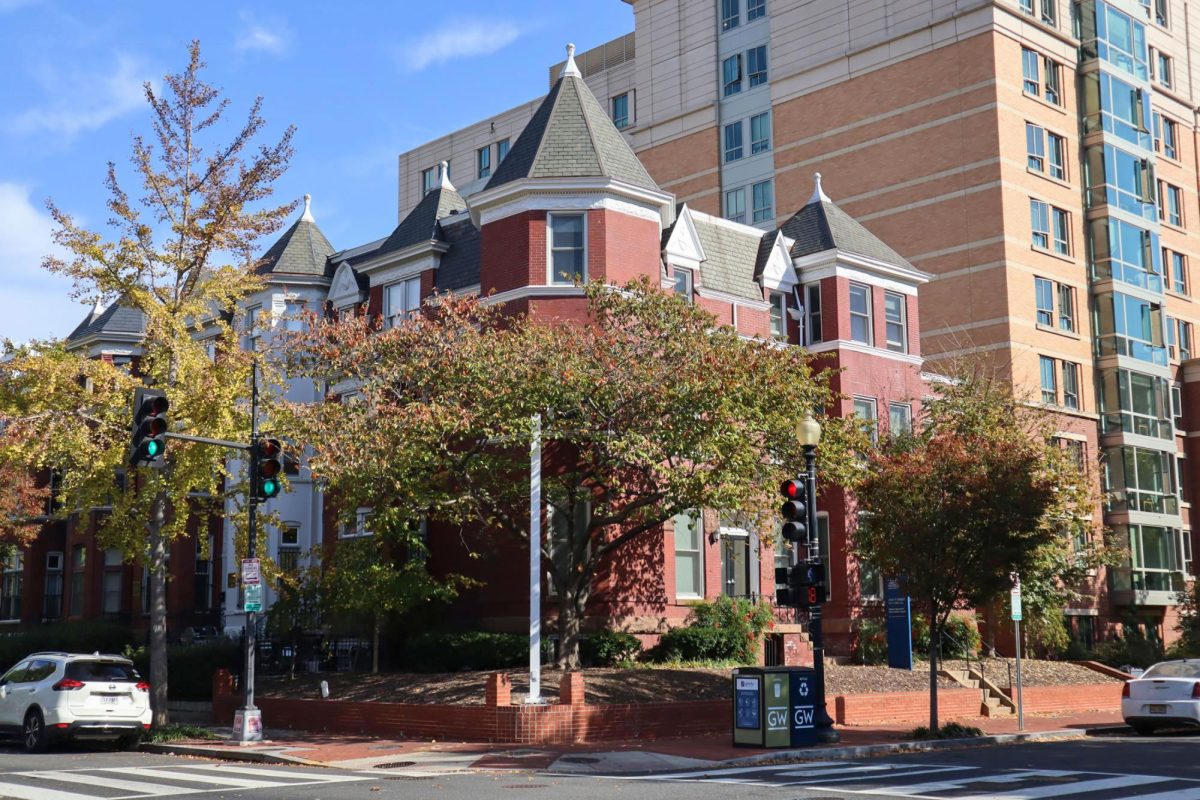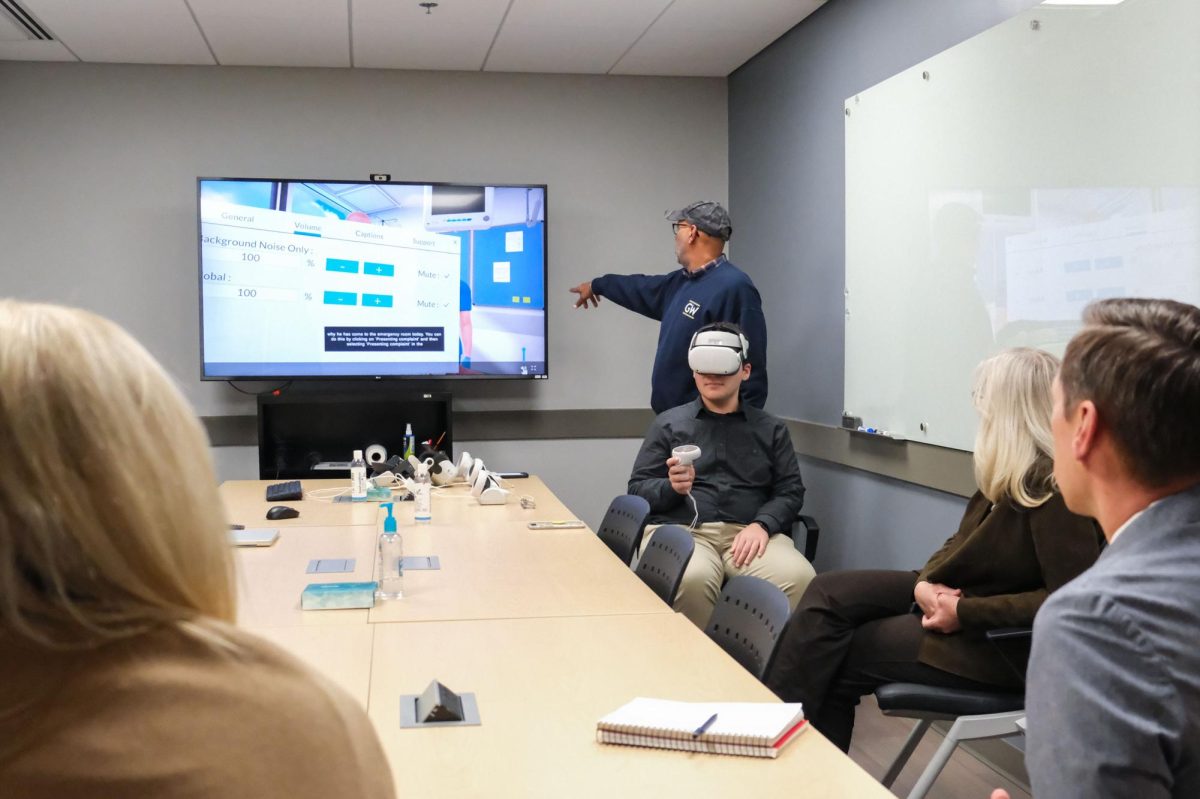Updated: September 24, 2019 at 7:11 p.m.
Women’s, Gender and Sexuality Studies program officials are launching a new speaker series next month.
Program leaders created the brown bag speaker series to give faculty members and students from departments and schools across GW a platform to share their research on issues like women and incarceration and the intersection between race and gender. Faculty said the seminars will foster communication between students and faculty about ongoing gender and sexuality research at the University.
Kavita Daiya, the director of the program, said she got the idea to bring a speaker series to GW after observing departments at other institutions, like the University of Chicago, host similar monthly workshops. She said both faculty members and graduate students, within and outside of the program, can volunteer to showcase their research to members of the GW community.
“What’s going to connect all of the talks is that this is all cutting-edge research that has been happening at GW and has been shedding new light thinking about lived experience about gender and sexuality through an intersectional approach, both in the United States and internationally,” she said.
Daiya said she wanted to give attendees the ability to bring their own lunches to the seminars to create a comfortable atmosphere to discuss the presenter’s research. She added that the “brown bag” aspect of the event is intended to encourage students and faculty to carve time out of their busy schedules to attend.
“I thought it would be really neat if we could create an intellectual space where faculty and students could meet over lunch, so it would be easy to pop in on a lunch break and have a dialogue about gender, race and sexuality,” she said.
She said the department plans to hold the seminars monthly and hopes other faculty in the program will bring in their students and peers to promote the seminars. Daiya said hosting speakers from multiple departments across the University allows the program to integrate subjects like history and business into sexuality studies.
She added that she will be responsible for facilitating the discussions along with Kelly Pemberton, the director of the program’s undergraduate advising office, and Cynthia Deitch, the program’s associate director. She said students and faculty can volunteer to present at a scheduled session or create their own session about their area of research.
“Faculty and students are welcome to volunteer to speak at or co-organize a session,” Daiya said. “We always need more fresh ideas and perspectives.”
Katina Sawyer, an assistant professor of management and one of the two presenters at the first event on Oct. 2, said she will discuss a study she conducted about a rehabilitation program for women of different ethnicities who were sexually exploited and how they are overcoming their emotional pain. She said the study focuses on how positive experiences in settings like rehab help people heal after enduring trauma.
“This isn’t a story that has a lot of happy endings, but I think it largely speaks to how complicated it is to successfully pursue new avenues as a marginalized woman in society, even if you have a hopeful mindset,” she said.
Sawyer said the sessions are a forum for participants to receive information through open dialogue instead of lecturing. The seminars will foster a more interactive environment for discussion by allowing attendees to ask questions about the presenter’s research and its importance, she said.
“I think that seminars are a great place to have conversations and ask questions, as opposed to other ways we often interact with new information,” she said.
Jameta Barlow, an assistant professor of writing and the other presenter at the first event, said she will present on the health outcomes of black women and how to achieve equity with women of other races.
“If you consider the rates of a lot of different health conditions of black women and black girls, we’re often a forgotten population,” Barlow said.
She said academic scholars often forget that women’s studies is considered an academic discipline and not simply an “opinion.” She said the discipline is about 60 years old and the seminars will teach guests about women in society and “social phenomena.”
“Why the field was even started was to really rebalance the curriculum to tell a more holistic and full story,” she said.
Jared Gans contributed reporting.








